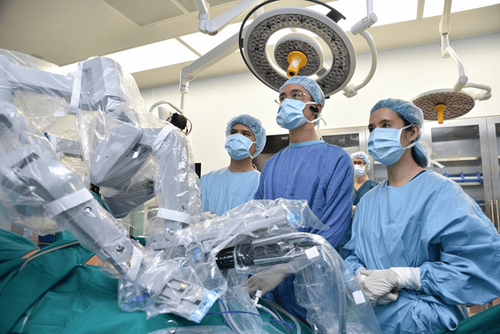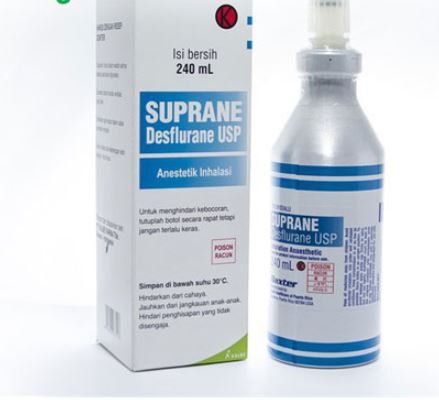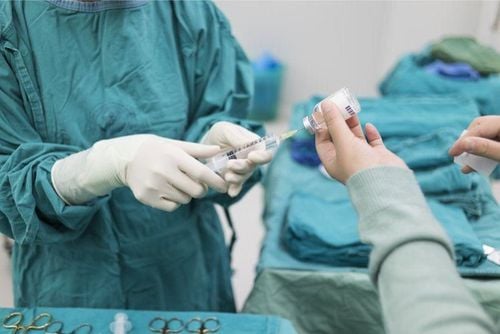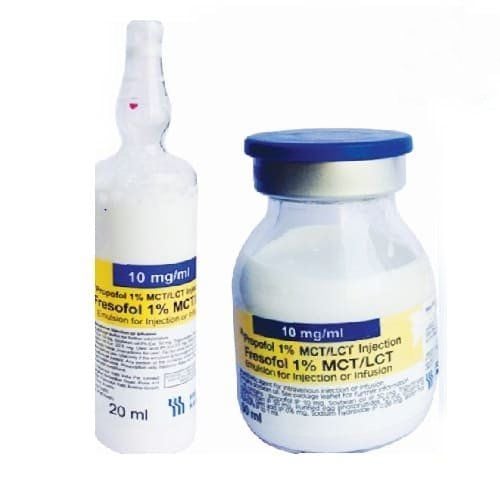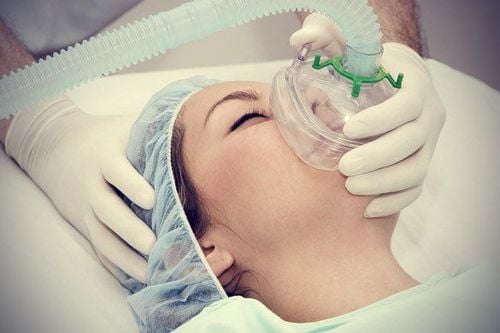This is an automatically translated article.
The article is expertly consulted by Master, Doctor Nguyen Tung Hoanh - Interventional Cardiologist - Department of Resuscitation - Emergency - Vinmec Nha Trang International General Hospital.Anesthesia is an anaesthetic, pre- and post-operative care. Renal physiology has an influence on the process of anesthesia and resuscitation, if kidney function is impaired, during surgery and anesthesia can increase the rate of complications and mortality after surgery.
1. Renal physiology affects the process of anesthesia resuscitation
Normally, the blood flow to the kidneys is altered depending on the self-regulating mechanism, which helps the body maintain the circulating volume and composition of the body fluids, and helps to excrete metabolites, toxins, and energy components for the body.Blood is filtered at the kidneys through the filtration mechanism, reabsorbed in the glomeruli, bowman capsule and renal tubules. Thereby removing toxic substances such as urea, creatinine .. from the body, retaining the necessary substances (protein, glucose, red blood cells...) for the body.
The regulation of blood to the kidneys by the following mechanisms:
The kidneys self-regulate the arterial blood pressure based on intrinsic factors; Extrinsic factors affecting renal blood flow include the sympathetic nervous system, receptors of the dopaminergic system, and the renin-angiotensin system. When using drugs in anesthesia and resuscitation, they can affect blood flow to the kidneys, thereby affecting hemodynamics, reducing arterial blood pressure and affecting the filtering capacity of the glomerulus, thereby decreasing. urine volume. Prolonged impairment of kidney function and need to be monitored and handled promptly. In addition, it also affects the amount of oxygen supplied to kidney cells.
Drugs used in resuscitation anesthesia that affect the kidneys:
respiratory anesthetics and some drugs for induction of anesthesia impair myocardial function, lower blood pressure and increase renal vascular resistance to varying degrees. moderate to severe results in reduced blood flow to the kidneys. Compensatory secretion by catecholamine secretion causes redistribution of blood in the core region of the kidney. Spinal or epidural anesthesia reduces blood flow to the kidneys and urine output. Some of the toxins in the f-releasing anesthetics inhibit the metabolism of substances, affect the ability of urine to concentrate, and cause inflammation and necrosis in the proximal tubule. These anesthetics are present in the low-level f-releasing anesthetic methoxyflurane. N20, if anesthetized alone, will often cause hypoxia to kidney cells. Barbiturates reduce blood flow to the kidneys. Morphine drugs reduce glomerular filtration rate, in addition, increase the secretion of adh hormone leading to oliguria. Muscle relaxants have little effect on renal blood flow, but they are partially or completely eliminated by the kidneys, so the dose should be reduced in renal failure. Adrenaline causes renal vasoconstriction causing renal ischemia. Dopamine: causes renal artery dilation, thereby increasing blood flow to the kidneys and increasing sodium excretion, increasing urine output. If the dose is high, it causes renal vasoconstriction and ischemia to the kidneys. Mechanical ventilation in patients recovering from surgery can cause hemodynamic disturbances, sympathetic stimulation... leading to decreased urine output, decreased sodium excretion, and decreased glomerular filtration rate.

Các thuốc dùng trong gây mê hồi sức có ảnh hưởng đến thận
2. Notes on anesthesia resuscitation for patients with chronic kidney disease
Usually, drugs used for anesthesia affect kidney function, so in patients with chronic kidney disease, care should be taken. Some of the effects of the drug on patients with renal impairment include:
Barbiturates and intravenous anesthetics (propofol): When using the drug in patients with renal impairment, it is necessary to reduce the dose more than usual due to acidosis. metabolism and changes in the blood-brain barrier. Opioids are mainly metabolized in the liver but can have a potent and long-lasting effect in patients with renal impairment. The active metabolites of morphine may prolong the effects of drugs that may lead to bleeding. Digoxin is excreted in the urine, so in patients with renal failure when using digoxin there is a risk of digoxin toxicity. Catecholamines (noradrenaline, adrenaline, ephedrine) cause renal vasoconstriction, thereby reducing blood flow to the kidneys. Aggravation of renal failure. Notes on anesthesia resuscitation for patients with renal failure:
Assess and clearly identify the cause leading to renal failure, assess the glomerular filtration rate before anesthesia; History of medical conditions such as diabetes mellitus, concomitant hypertension. Current status of using drugs such as medicines for chronic diseases, digitalis... Assess current symptoms such as less urine, more urine, edema, shortness of breath... Assess overall kidney function by subclinical tests. Such as measuring glomerular filtration rate, proteinuria status, electrolytes... Dosage of drugs used must be calculated in accordance with the specific condition of the patient; Monitoring of the patient during anaesthesia is very important, and focus should be on the patient's hemodynamics to ensure adequate renal perfusion and maintenance of blood flow to the glomeruli.
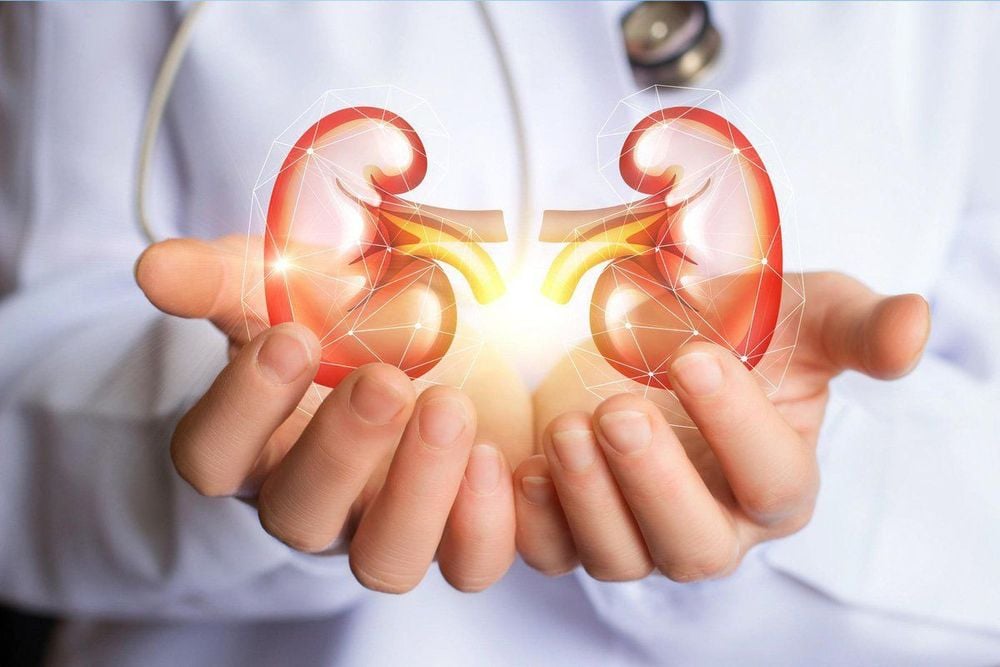
Sinh lý thận và bệnh lý của thận liên quan rất chặt chẽ với quá trình gây mê hồi sức
Renal physiology and renal pathology are closely related to the process of anesthesia and resuscitation. The use of drugs and means of anesthesia in resuscitation have a direct effect on renal perfusion. When there are diseases in the kidney, the use of drugs should be very careful to avoid affecting kidney function.
Currently, Vinmec International General Hospital is one of the hospitals that strictly applies safe surgical anesthesia practice standards according to international guidelines. Vinmec has a team of experienced anesthesiologists and nurses, modern equipment such as: nerve detectors, ultrasound machines, Karl Storz's difficult airway control system, comprehensive anesthesia monitoring system GE's AoA (Adequate of Anesthesia) including monitoring of anesthesia, pain and muscle relaxation will provide high quality and safety, helping patients to have adequate anesthesia, not wake up, and do not have residual muscle relaxants after surgery.
Vinmec Health System is also proud to be the first hospital in Vietnam to sign with the World Anesthesiology Association (WFSA) towards the goal of becoming the safest hospital for surgical anesthesia in Southeast Asia.
Please dial HOTLINE for more information or register for an appointment HERE. Download MyVinmec app to make appointments faster and to manage your bookings easily.




